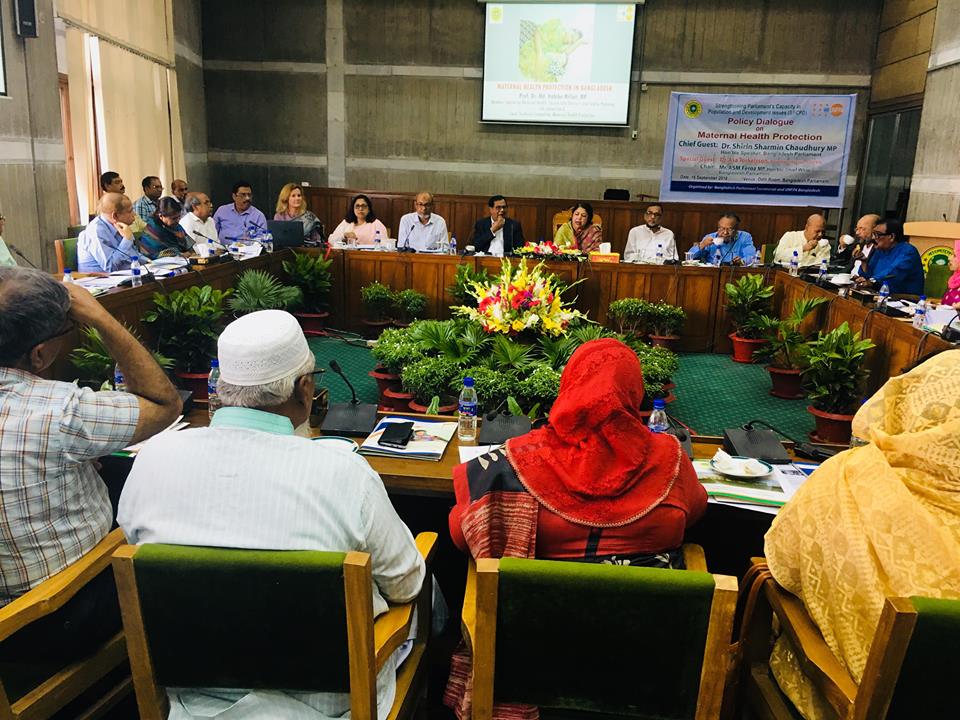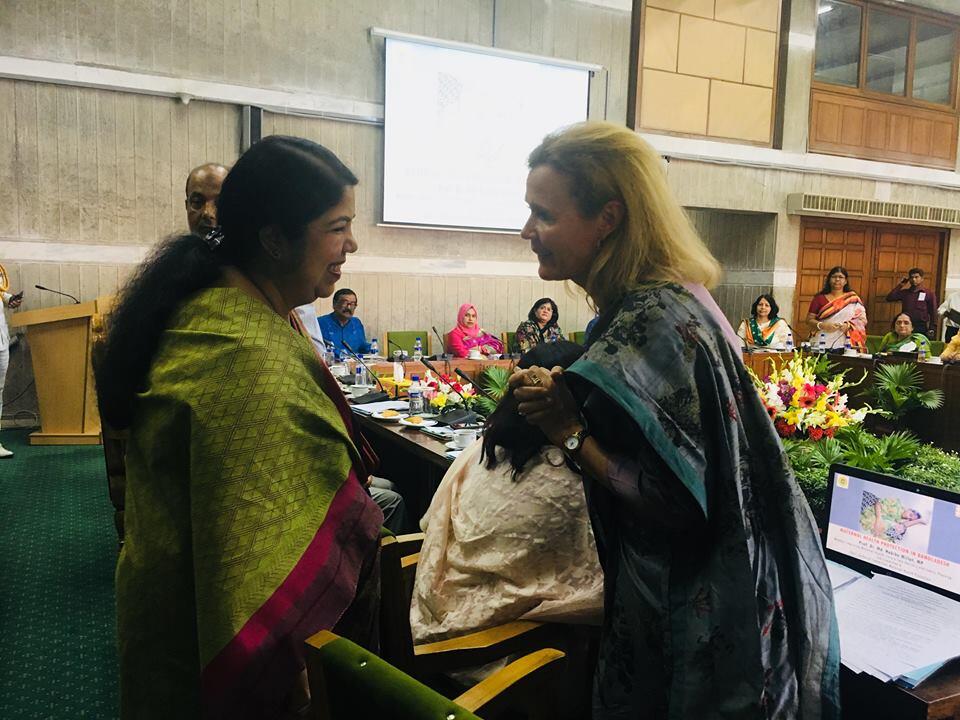Reliable and better notification of maternal deaths is essential for the successful diagnosis of barriers to care and formulation of targeted interventions to get to zero maternal deaths. Indeed, maternal and perinatal death surveillance can provide a better scope for planning and prevention of maternal and perinatal deaths. Bangladesh has been steadily progressing towards reducing maternal deaths, and the present maternal mortality rate at 176/100,000 live births according to the UN estimation; however, the sustainable developmental goal (SDG) target is to reduce maternal deaths to less than 70 per 100,000 livebirths by 2030.
It is challenging to report a maternal death, but every classified and recorded maternal death represents an opportunity to take corrective action making sure that no other women will not die in the same way. Every case of maternal death can offer a unique opportunity to understand and mitigate weaknesses in the continuum of care, encouraging interventions that are better tailored to local circumstances, and target at the most critical parts of the health system.

In Bangladesh, the Ministry of Health and Family Welfare (MoH&FW) has established the successfully running Maternal and Perinatal Death Review (MPDR) system to count maternal and perinatal deaths and response to deaths in 27 districts. District Health Information System (DHIS-2) is considered the key platform for recording health-related data, to track progress and performance of the health system which also includes capturing maternal and perinatal deaths. However, the DHIS-2 platform needs to be further strengthened to accurately capture maternal deaths and review of the circumstances conducted to avoid recurrence.
Until now, Bangladesh has not yet been able to capture all maternal deaths in a routine system. Bangladesh, therefore, has taken the initiative to enact a maternal health protection act for the country. Due to the consistent advocacy of UNFPA with policymakers, for the first time, the maternal health subcommittee of Bangladesh Parliament raised the immediate need for a maternal health protection act in a meeting on 30 August 2016. As a result, a national level workshop was initiated to develop the act, led by the Chief Whip of Bangladesh Parliament and facilitated by UNFPA.

A technical committee was formed and chaired by Prof. Habibe Millat, Member of Maternal Health Subcommittee of Bangladesh Parliament, which included members from the Ministry of Health and Family Welfare, technical experts, development partners, city corporation and CRVS. The committee came together to discuss the formulation and development of the maternal health protection act for the country.
Over several months, this technical committee has drafted a maternal health protection bill with consideration and feedback from workshops and meetings held with relevant stakeholders in various Divisions all over Bangladesh, and it was submitted to the law review committee of the Bangladesh Parliament for review before final submission. The progress accumulated to a policy dialogue on Maternal Health Protection that was jointly organized on September 17, 2018 by UNFPA and the Bangladesh Parliament.
The discussion of the policy dialogue included a keynote presentation Prof. Habibe Millat, MP, and an open discussion with fellow Parliamentarians and respective stakeholders. The dialogue was chaired by Mr. A S M Feroz, Chief WHIP, Bangladesh Parliament, with the Honorable Speaker of the Parliament Dr. Shirin Sharmin Choudhury present as the chief guest.

Speaking on the importance of the policy dialogue, Hon. Speaker Dr. Shirin Sharmin Choudhury recommended a further mapping should be done to see which areas have high mortality and complication rates, to determine more area focused interventions and referral systems. In a fruitful discussion, Parliamentarians brought up the fact that more awareness needs to be increased to the public to ensure facility delivery. Furthermore, facilities need to be strengthened with midwives, 24/7 service and stocked with all the necessary drugs especially for PPH and eclampsia. A follow-up meeting has also been agreed upon to further discuss the implementation of the way forward from this policy dialogue.

UNFPA Representative, Dr. Asa Torkelsson, suggested that “The DHIS-2 platform needs to be further strengthened to accurately capture maternal deaths and review of the circumstances conducted to avoid recurrence. This process needs a strong legal basis to ensure accountability and this policy dialogue is an important milestone towards that pursuit.” Speaking on the importance of the policy dialogue, she further expressed “this is a very important time to give particular attention to maternal health protection and promotion, as every maternal death prevented is a step forward in reaching the goal.”
Bangladesh aspires to become a middle-income country by 2021 and a developed country by 2041. It is a pivotal time to give particular attention to maternal health protection and promotion, the enactment of the Maternal Protection Act is an essential step towards ensuring every maternal death is prevented and a step forward towards reaching the collective goal.


